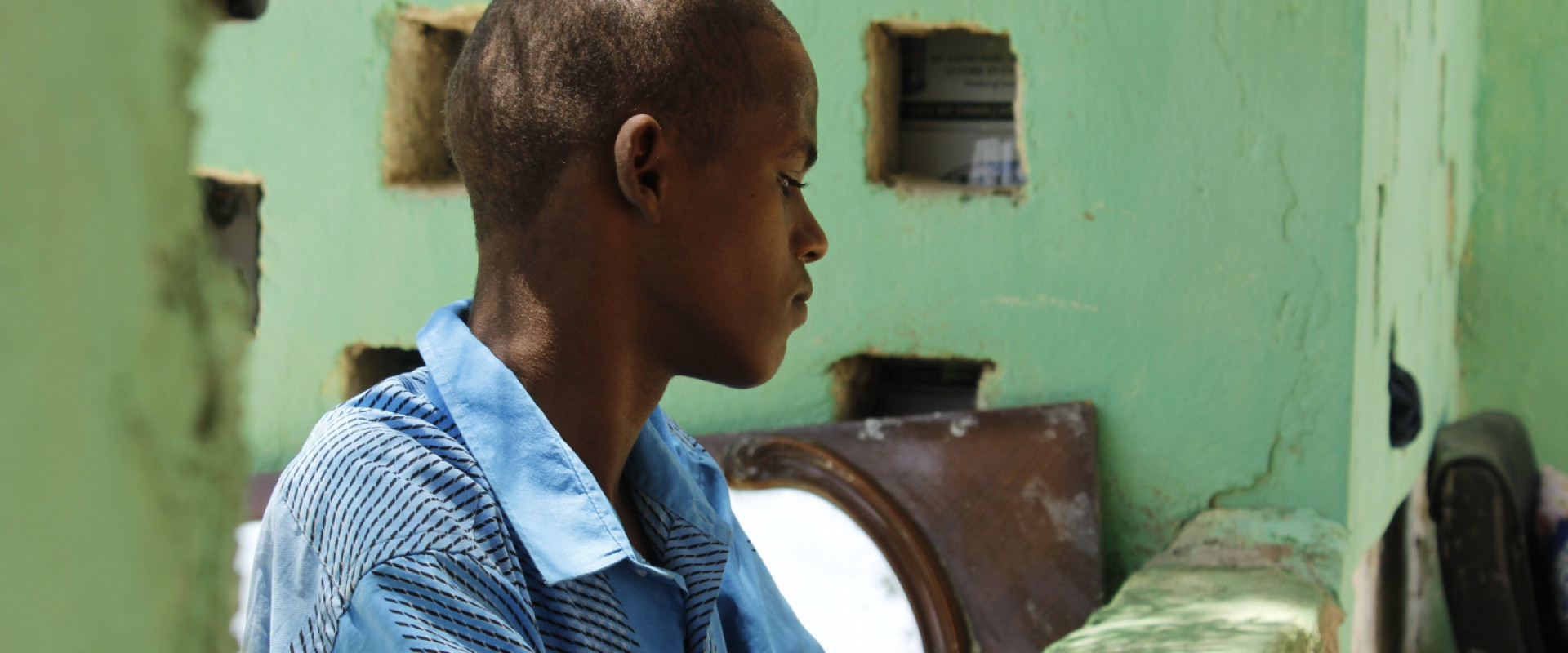Stranded Youth are Desperate to Return Home Amid COVID-19 Fears
The days are long and full of worry for Hakim, a 17-year-old who has been stranded in Bosasso, Puntland, for three months. This is plenty of time for him to think about the journey that still lies ahead: Although he would like to get back home, he cannot.
Originally from Harar, Ethiopia, the young migrant had originally planned to travel to Saudi Arabia in search of a better life for himself and his family. “My dream is to become a doctor,” he says. Hakim was hoping to work and build up savings to finance his studies.
Hakim describes his experience travelling to Bosasso in a vehicle with others with similar dreams: “I came to Bosasso by car. When we reached checkpoints, we hid ourselves so that the police wouldn’t see us.”
He says the most difficult part of journey was the lack of food and water for three days before arriving at Laas Caanood (a city 674 Km away from Bossaso) and walking for 15 days. “The smugglers used to threaten us by stabbing if one of us got tired from the long walk.”
The constant struggles, no doubt worsened by restrictions connected to COVID-19 prompted Hakim to change his plan of reaching Saudi Arabia. “My biggest fear is this COVID-19 pandemic. I fear it will kill me somewhere which isn’t my country. I prefer to die in my country than other places.”
The impact of COVID-19 on migrant decision-making cannot be understated, especially the fear of stigma as well as falling ill and dying alone in a foreign country. This also extends to family pressure. In Hakim’s case, his mother pleaded with him to return home.
But turning back may turn out to be the most stressful part of Hakim’s journey due to the fact that currently all IOM-assisted movements are on hold due to movement restrictions in the region.
He is presently staying at the Ethiopian Community Committee Safe House in Bosasso, which is supported by the EU-IOM Joint Initiative for Migrant Protection and Reintegration in the Horn of Africa. Apart from shelter, his basic needs are also covered.
“I do nothing at all these days, I am just waiting to see whether I can go back home. At least the Ethiopian Community Centre is giving us food and shelter as well as health care.”
Prior to finding his way to the Safe House, Hakim — and a few others — sought shelter and food from the general community in Bosasso. “We begged them for help even though we didn’t know their language, and they kept helping us.”
This is a common story among migrant youth stranded in Bosasso. IOM estimates that there are large groups of Ethiopian migrants stranded in Bosasso, but it is difficult to know the exact number or how many of them are minors. Research by IOM has found that children made up about a sixth per cent of the 138,213 mainly Ethiopian irregular migrants who reached Yemen, en route to the Gulf States last year.
Hakim acknowledges the challenges he has faced in the last few months and is not willing to jeopardise his safety any longer. His mind is now bent toward one single thought: returning home. “All I want is going back to Ethiopia, my future is there now, even if the borders are open or not. I have already requested this to IOM.”
IOM runs an Assisted Voluntary Return and Reintegration (AVRR) Programme to help migrants like Hakim to return to their countries of origin in a safe and dignified way.
The programme is offered to migrants willing to return home. It facilitates their travels and ensures that they receive support to restart their lives back home. But the movement component of AVRR support is currently on hold.
The EU-IOM Joint Initiative has offered AVRR support since March 2017 and to date 1133 Ethiopian migrants have returned home from Somalia. Last year the programme in Somalia also supported 56 returnees with reintegration grants.
Reintegration assistance can include counselling or medical assistance for returnees, a reintegration grant to set up a small business, vocational training or job placement and education for minors as well as follow-up monitoring.
About the EU-IOM Joint Initiative
Launched in December 2016 with the support of the European Union (EU) Emergency Trust Fund for Africa, the programme brings together 26 African countries of the Sahel and Lake Chad region, the Horn of Africa, and North Africa, the EU and IOM around the goal of ensuring migration is safer, more informed and better governed for both migrants and their communities.
